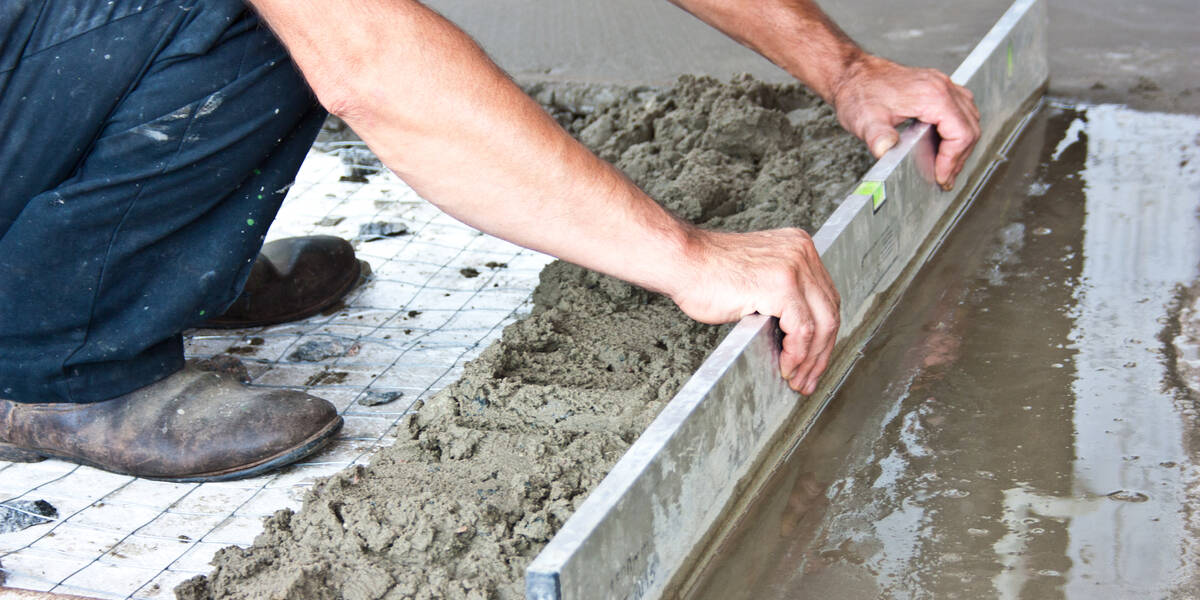Facebook parent company Meta has a new project that’s grounded in the physical realm: using artificial intelligence to discover new formulas for green concrete.
Concrete is foundational to modern construction, but the manufacturing process is a huge source of carbon emissions. Manufacturing cement, one of the primary ingredients in concrete, is responsible for around 8 percent of global carbon emissions, which reportedly makes it the largest single industrial emitter. And that’s just the cement – lots of other stuff with its own trail of carbon emissions goes into concrete.
Meta, which is currently working on eight datacenter projects, pours a lot of concrete.
That makes it harder for the company to keep working toward its sustainability goals like eliminating supply chain carbon emissions by 2030. Greening concrete isn’t easy either, said Meta Sustainability program manager Amruta Sudhalkar.
“Manually optimizing a concrete formula for both sustainable and technically sound outcomes… is a formidable challenge,” Sudhalkar said. The factors that go into making a good concrete, especially one that’s trying to replace its cement content, means not only accounting for ingredient ratios, but also external factors like weather and location.
If trying to discover specific formulas from large pools of potential ingredients sounds familiar, that’s because it’s a lot like drug discovery, which is something machine learning excels at. Using machine learning to develop new concrete formulations that reduce carbon emissions and retain strength is seen as a natural extension of that technology.
Meta partnered with University of Illinois at Urbana-Champaign professors Lav Varshney and Nishant Garg, from electrical and computer engineering and civil engineering respectively, to build an AI model to do just that.
The AI was trained on concrete compressive strength test data that included formulas and considered curing times, and carbon footprints for the different formulas were derived from the Cement Sustainability Initiative’s environmental product declaration tool.
Meta physical: Facebook parent to open its first real-world store
Chinese e-commerce giant Alibaba makes 9 datacenter energy patents available
Meta strikes blow against 30% ‘App Store tax’ by charging 47.5% Metaverse toll
Zuckerberg gets $26m in ‘other’ Meta compensation
The research team selected five potential candidates for real-world testing, each of which “entailed significant replacement of cement (upwards of 70 percent) with a combination of two types of low-carbon substitutes, namely fly ash and slag,” Sudhalkar said.
Ozinga, Meta’s concrete supplier for the DeKalb project, poured the AI-formulated concrete as the foundation for an on-site guardhouse and the construction management team’s temporary office space. According to Meta, the test concrete resulted in carbon emissions 40 percent below regional benchmarks, and also proved to be stronger in seven and 28-day strength tests.
Not all went perfectly, though. While the new concrete was strong given time, it still wasn’t curing fast enough to meet Meta’s construction priorities for the site. “We are working to improve the early strength performance of the concrete at the three to five-day marks, and account for the impact that variations in environmental conditions, such as temperature and wind, can have on concrete performance,” the company said.
While Meta works to fix those problems, the company also noted that it sees its green concrete as usable in different industries and for different use cases, and is especially well suited to situations without the time constraints that necessitate faster curing.
To that end, Meta has published its work on the project, and will present more on its findings at the Association for Computing Machinery’s Compass conference in late June. ®

